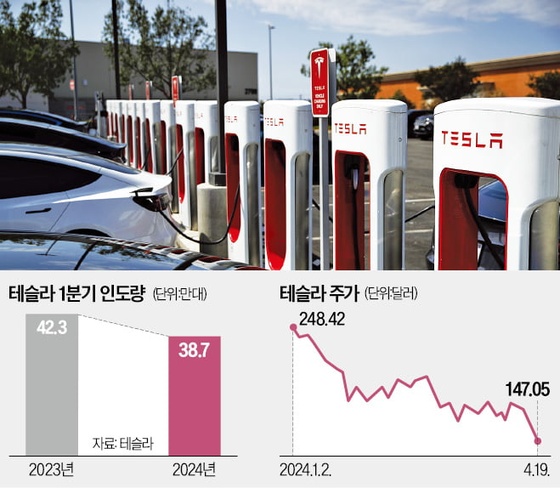[Global View] 브렉시트의 영국 경제 손익계산서
![[Global View] 브렉시트의 영국 경제 손익계산서](https://img.hankyung.com/photo/201605/AA.11656521.1.jpg)
요즘처럼 세계화된 경제 체제 안에서 ‘경제적 주권’이란 존재하지 않는다. 물론 브렉시트를 지지하는 진영은 경제적 주권보다 정치적 주권을 추구하려는 목적으로 움직이고 있다. 하지만 경제 문제와 정치 문제를 분리해서 생각하는 것은 매우 어려운 일이다.
내달 23일 브렉시트 투표에 앞서 이 문제를 잘 생각해 봐야 한다. 유럽연합(EU) 탈퇴 진영이 승리한다면 영국은 황야 같은 거친 환경 속에서 (브렉시트 진영이 바라는 대로) ‘주권국가’로 존재할 수는 있을 것이다. 상당기간 암흑의 터널 속에서 헤매면서 말이다.
최근 브렉시트를 둘러싼 경제적 득실 계산법을 지켜보면 잘못된 추론에 기반한 주장이 적지 않다. 심각하게 나빠질 수 있는 영국의 경제·사회 문제에 관한 논의는 대부분 EU와 직접 관련이 없다. EU 탈퇴가 해법이 될 수 없다는 뜻이다.
주택·연금 시스템은 英 국내 문제
예컨대 영국이 당면한 가장 중요한 경제 문제는 젊은 세대에게 감당할 만한 가격의 주택을 제공할 수 있느냐, 노령층에게 알맞은 수준의 연금을 줄 수 있느냐 등이다. 이는 영국의 문제고, EU 회원국 여부와 직접 관련된 것은 아니다. 게다가 EU 탈퇴는 이 문제를 해결할 수 있는 선택지를 줄일 것이다. 영국이 EU의 금융·노동시장에서 단절되면 주택 마련에 필요한 비용이 올라가고 연금기금의 운용수익률이 떨어질 공산이 크다.
일자리가 늘지 않고 공공재정이 나빠지는 문제도 EU와 직접 관계가 없는 문제다. 영국은 기본적으로 상당한 경상수지 적자 국가다. 이를 해소하려면 해외에서 자본이 유입돼야 한다. 이런 영국 내부의 구조적 문제가 EU 바깥에 남게 됐을 때 얻을 새 경제적 기회로 해결이 될까.
글로벌 금융위기 후 남미·동아시아·아프리카 등 신흥국 경제의 괄목할 만한 성장은 2014년 미국 중앙은행(Fed)의 양적 완화 중단과 중국 경제성장 둔화를 기점으로 멈췄다. 따라서 브렉시트 후 영국이 중국 등 신흥국 경제와 무역을 통해 높은 경제성장률을 달성하겠다는 기대는 비현실적이다.
EU에 남아있는 게 유리
브렉시트 후 영국이 EU와 교역을 하려는 미국·일본·중국 기업에 매력적인 중간기지가 될 것 같지도 않다. 우리는 지금 범대서양무역투자동반자협정(TTIP)처럼 주요 경제국 간 무역협정이 당연시되는 시대에 살고 있다. EU 밖에 선 영국은 자국의 경제적 이익을 지켜낼 수 있는 경제적·지정학적 권력을 갖지 못할 것이다.
영국 경제의 치명적 약점은 비정상적인 주택시장, 망가지고 있는 연금 시스템, 높은 수준의 경상수지 적자, 낮은 생산성, 줄어든 민간투자, 지역적 불균형 등과 같은 영국 내부의 구조적 문제다. 영국은 EU에 남아 있을 때 이런 구조적 문제를 해결하기가 더 수월할 것이다. 브렉시트는 파운드화를 취약하게 만들고 국제수지를 악화시켜 국내외 기업의 무역과 장기투자를 위축시킬 것이기 때문이다.
이스마일 에르튀르크 < 영국 맨체스터대 비즈니스스쿨 교수 >
정리=이상은 기자 selee@hankyung.com
◇ 한국경제신문은 맨체스터대 비즈니스스쿨(MBS) 교수진의 세계 경제·경영에 관한 기고문을 한 달에 1회 독점 게재합니다.
다음은 축약 전 영어 전문.
Economics of Brexit is based on fallacy: structural economic problems of the U.K. are British made.
Ismail Ertürk, Alliance Manchester Business School, The University of Manchester
With Barack Obama, President of the U.S., throwing his weight into the Brexit debate supporting in economic terms the remain camp it should now be very clear to everyone in the U.K., and especially to the leave camp, that there is no such thing as economic sovereignty in our age of globalised world economy. Of course the leave camp in the U.K. is driven primarily by a quest for political sovereignty not economic sovereignty but it is extremely difficult to separate the political from the economic for a country of U.K.’s size in international relations. For a nation that produced some of the most influential works on political economy, from Ricardo to Keynes, the referendum on the E.U. membership in June 2016 will call for some fine thinking on the subject because, if the leave camp wins, Britain can find itself in a historically significant wilderness as a sovereign state, looking into a tunnel without light for quite some time.
The st erling and the U.K. government bond markets have already felt the chill of the possibility of being in wilderness in international relations. Alarmed by these adverse developments the Bank of England and the U.K. Treasury have produced calculations showing the economic loss the U.K. is going to suffer outside the E.U. Most of the arguments of the leave campaign, on the other hand, were based on a political assessment of the economic balance sheet of the U.K. from the E.U. membership in the aftermath of the 2007 financial crisis. A referendum would be unthinkable in the booming years of the early noughties before the crisis.
Therefore the remain campaign feels that the success will hinge upon putting forward a strong economic argument on the higher cost of leaving the E.U. And it looks like the votes in the referendum will swing to the tune of perceived economic benefits of leaving versus remaining. So Obama’s intervention to warn the economic costs of a Brexit was very effective although the final outcome of referendum is not guaranteed.
The economic cost of Brexit is extremely difficult to be expressed in monetary measures that ordinary people would understand. Like most economics all long term calculations are based on numerous assumptions about not only what happens in Europe and the world economically but also politically. Notwithstanding the difficulties of measuring direct cost of Brexit, I believe, the economics of both the remain and the leave campaigns are based on fallacies rather than reality. For example the most important economic and social problems in the U.K. with seriously destabilising potential have nothing to do with the E.U. and all to do with the U.K.’s own historical choices and economic structure.
For me the most important economic problems of the U.K. are affordable housing for the younger generations and adequate pensions for the aging population. Both the housing market and the pensions system in the U.K. are as British as pork pie and have nothing to do with the E.U. membership. These two generational problems pose great social and economic threats to the U.K. and leaving the E.U. will reduce the number of options to solve them. Being cut off from the financial and labour markets of the E.U. is likely to increase the costs of home ownership and returns on pension funds.
In addition to these generational problems other structural problems of the U.K. that prevent creation of jobs and cause deterioration of public finances have nothing to do with the E.U. either. Past industrial policies and heavy reliance of the banking system to funds outside U.K. mean that the U.K. has very high levels of current account deficit that makes foreign direct investment and capital flow into the U.K. vital for deficit financing. Can such structural problems be balanced by the economic opportunities outside the E.U. as the leave campaign argues? Post-crisis spectacular growth of emerging economies in South America, East Asia and Africa has stopped in 2014 with the U.S. ending its monetary ease and Chinese economy slowing down.
Therefore a U.K. outside the E.U. achieving higher economic growth by increasing trade with the emerging economies and China is no longer a realistic future for the U.K. On top of this the U.K. outside the E.U. is very unlikely to be an attractive base for corporations from the U.S., Japan and China to trade in the E.U. We now live in an age where trade agreements between major economic powers, like TTIP, are the norm. Outside the E.U. the U.K. is not going to have meaningful economic or geopolitical power to protect the economic interests of the U.K. London, as a city state within the U.K., can of course prosper outside the E.U. because of its strengths in international finance and openness to cosmopolitan wealth. But this is going to increase the already unhealthy divide between the South and the North in the U.K. with considerable political and social problems.
The current debate on the economics of Brexit revolves around a suspect analysis of the external economic and political conditions that are conjunctural and contingent over the last seven years since the financial crisis of 2007 rather than the internal dynamics of the U.K. economy. The fatal weaknesses of the U.K. economy are embedded in the structural problems of the U.K. like dysfunctional housing market, crumbling pensions system, high levels of current account deficit, low productivity, low private sector investments and regional imbalances. The U.K. is more likely to find solutions to these structural problems within the E.U. than outside because these structural problems outside the E.U. are likely to cause volatile currency and serious balance of payment crisis that discourage foreign and domestic firms from long-term investment and trade decisions.
-
기사 스크랩
-
공유
-
프린트
![[한경에세이] 청소년 정책이라는 씨앗에 투자해야](https://img.hankyung.com/photo/202404/07.36439047.3.jpg)
![[조일훈 칼럼] 늙어가는 국가, 오늘만 살겠다는 사람들](https://img.hankyung.com/photo/202404/07.35383340.3.jpg)
![[데스크 칼럼] 여야 '부동산 협치' 시급하다](https://img.hankyung.com/photo/202404/07.18256415.3.jpg)


![기업실적 호조에 일제히 상승…테슬라는 최대폭 매출 감소[뉴욕증시 브리핑]](https://timg.hankyung.com/t/560x0/photo/202404/ZA.36457219.1.jpg)







